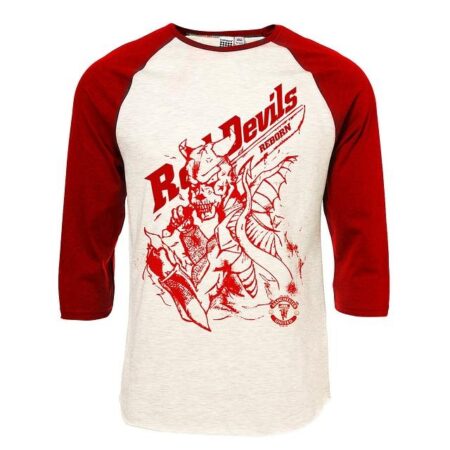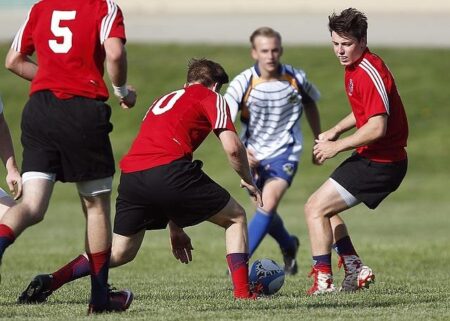Paul Saluja, a prominent sports advocate, has called on West Virginia officials to expedite the implementation of Name, Image, and Likeness (NIL) rights for high school athletes. In a recent opinion piece published by the Charleston Gazette-Mail, Saluja argues that allowing high school students to benefit from their NIL could revolutionize local sports, provide valuable opportunities for young athletes, and align West Virginia with evolving national standards. As discussions continue nationwide about athlete compensation, Saluja’s perspective adds urgency to the conversation within the Mountain State.
Paul Saluja Urges West Virginia to Conclude NIL Policy for High School Athletes
In light of the growing national momentum behind Name, Image, and Likeness (NIL) rights, Paul Saluja emphasizes the urgency for West Virginia to finalize a clear and comprehensive policy allowing high school athletes to benefit financially from their personal brands. Currently, the absence of such regulations leaves young athletes in limbo, hindering their ability to profit legitimately from endorsements, sponsorships, and other opportunities that have become commonplace in collegiate sports. Saluja argues that a well-defined NIL framework would not only protect athletes but also encourage responsible engagement with local businesses and strengthen community ties.
Key considerations Saluja highlights for an effective West Virginia NIL policy include:
- Transparency: Clear guidelines preventing conflicts of interest and exploitation.
- Education: Programs to help student-athletes understand contracts and financial literacy.
- Equity: Ensuring all athletes, regardless of sport or gender, are afforded equal NIL opportunities.
- Compliance: Alignment with West Virginia Secondary School Activities Commission (WVSSAC) rules and state law.
| Aspect | Current Status | Proposed Improvement |
|---|---|---|
| Legal Clarity | None | Comprehensive statute |
| Athlete Protection | Minimal | Safeguards & educational programs |
| Business Engagement | Informal | Structured partnerships |
| Enforcement | Weak | Clear WVSSAC oversight |
Addressing Equity and Athlete Rights in West Virginia High School Sports
West Virginia stands at a critical crossroads in ensuring fairness and respect for its young athletes. Allowing high school players to benefit from their Name, Image, and Likeness (NIL) rights is more than a financial opportunity-it is a matter of equity and recognition of their hard work. Currently, many student-athletes face restrictions that hinder their ability to monetize their talents, placing them at a disadvantage compared to peers in states with more progressive policies. Establishing a clear and comprehensive NIL framework would create a level playing field, allowing all athletes-regardless of background-to access resources that support their growth both on and off the field.
Key considerations for West Virginia’s NIL policy include:
- Protecting athletes from exploitation by ensuring transparent and fair contracts
- Providing education on financial literacy and legal rights
- Maintaining eligibility and ensuring compliance with state athletic regulations
| Aspect | Current Status | Recommended Action |
|---|---|---|
| NIL Policy | Undefined | Implement statewide standardized NIL guidelines |
| Athlete Education | Minimal | Mandatory financial literacy workshops |
| Eligibility Rules | Restrictive | Clarify compliance to protect athlete participation |
Potential Impact of Finalized NIL Rules on Student-Athlete Opportunities
Finalizing Name, Image, and Likeness (NIL) rules in West Virginia holds the promise of transforming the athletic landscape by unlocking new avenues for high school athletes to benefit financially while still in school. With clearly defined regulations, student-athletes could engage in endorsements, social media partnerships, and local sponsorships without fear of jeopardizing their eligibility. This clarity would not only empower athletes to capitalize on their personal brands but also foster a culture where sportsmanship and entrepreneurship thrive hand-in-hand. The potential economic boost could support not just individual athletes but entire communities, providing roles in marketing, event promotion, and youth sports development.
Key opportunities emerging from finalized NIL rules include:
- Financial independence: Allowing athletes to earn compensation gives them financial resources to support their education and family needs.
- Skill development: Navigating contracts and brand management can teach valuable life skills applicable beyond sports.
- Community engagement: Athletes can partner with local businesses, increasing visibility and local economic activity.
- Recruitment advantages: Schools with clear NIL frameworks may attract top talents seeking guidance in monetization.
| Opportunity | Potential Benefit |
|---|---|
| Brand Partnerships | Monetary gain & networking |
| Social Media Promotions | Increased exposure & skill building |
| Community Sponsorships | Local economic growth |
| Educational Workshops | Financial literacy & contract understanding |
Recommendations for Policymakers to Protect and Empower Young Athletes
Policymakers have a critical role in shaping a fair and sustainable Name, Image, and Likeness (NIL) framework that protects the interests of young athletes while empowering them to capitalize on their talents. At the forefront, legislation should establish clear guidelines that prevent exploitation by unscrupulous agents and ensure transparent financial education for students. This would enable athletes to navigate NIL opportunities confidently, safeguarding their academic progress and long-term wellbeing. Additionally, collaboration with schools, athletic organizations, and families can help create a supportive ecosystem where young athletes are equipped to balance sports, education, and personal growth.
To foster equity, policies must also address disparities in access across socio-economic and geographic lines. This includes providing resources that level the playing field for rural or underfunded schools and promoting inclusive NIL marketplaces that encourage diversity among participants. Below is a snapshot of key policy priorities that can drive effective implementation:
| Policy Priority | Key Action | Impact |
|---|---|---|
| Education & Training | Mandatory NIL workshops for athletes | Informed decision-making |
| Transparency Measures | Public reporting of NIL contracts | Accountability & trust |
| Equity Programs | Funding for under-resourced schools | Expanded opportunity access |
| Regulatory Oversight | Creation of NIL compliance offices | Protection from exploitation |
In Conclusion
As West Virginia continues to navigate the complexities of name, image, and likeness regulations, voices like Paul Saluja’s underscore the urgency for clear and timely policies that address high school athletes’ rights. Finalizing NIL guidelines could not only align the state with emerging national standards but also empower young athletes to benefit from their talents. The Charleston Gazette-Mail will continue to follow developments on this issue as lawmakers and stakeholders work toward a resolution.





